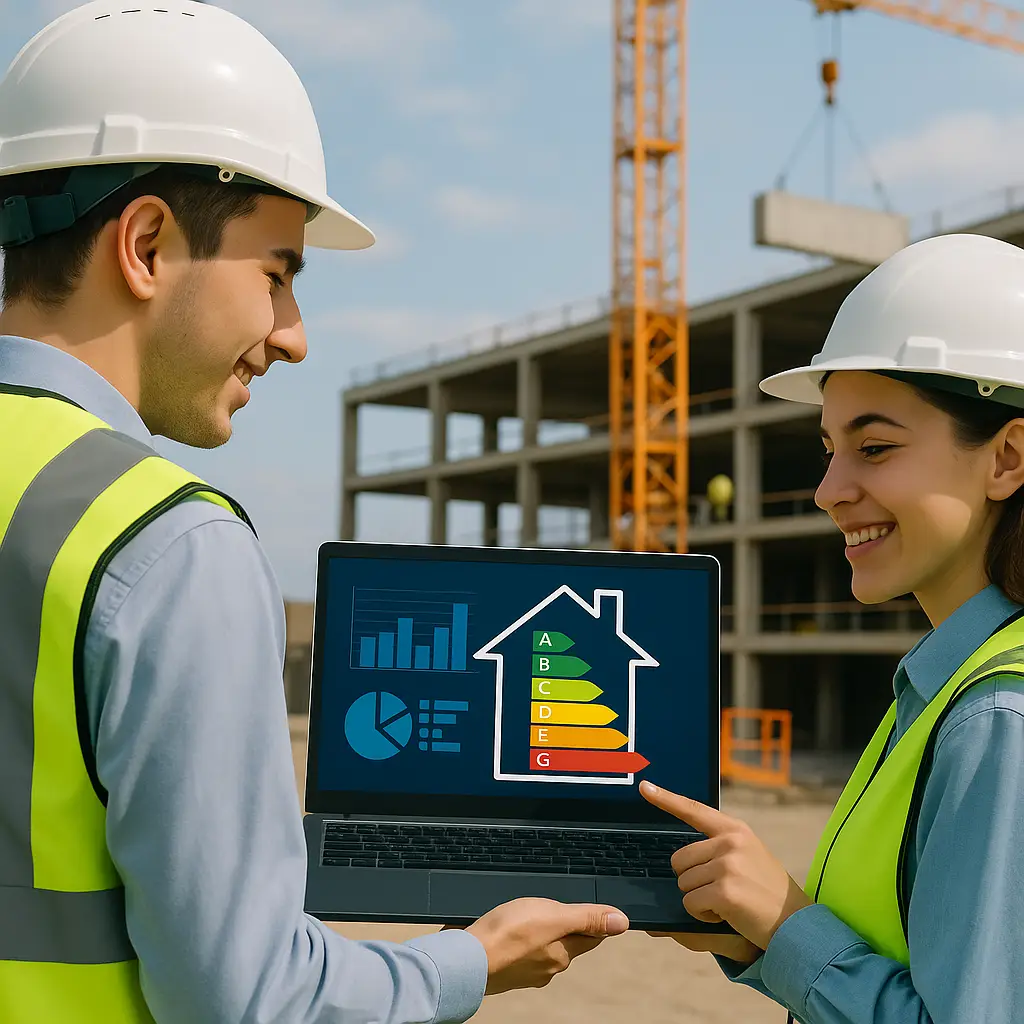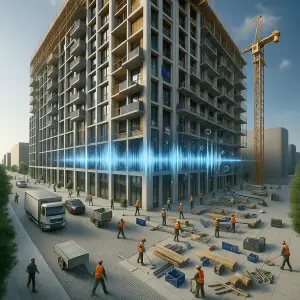Why SAP Assessment Leeds Matters for Energy Efficient Buildings
Energy performance evaluations are part and parcel of any building project. Whether it’s a new residential development or a refurbished commercial space, how well a structure keeps in heat and uses energy affects everything from comfort to carbon emissions. One method stands out when it comes to assessing these qualities in the UK: the Standard Assessment Procedure, better known as SAP.
At Ratio Seven, we know how vital it is to get energy performance right from the start. SAP assessments are a core part of this, especially in growing cities like Leeds. With ambitious sustainability goals and strict building regulations, Leeds isn’t just ticking boxes. It’s trying to lead by example, and your project needs to meet those standards.
Let’s take a closer look at what SAP assessments involve, how they shape the outcome of your building project, and where they fit into the EPC rating Leeds system. Most importantly, we’ll share how SAP assessment Leeds processes help meet both compliance and long-term cost savings.
What Is a SAP Assessment and Why Do We Need One?
A SAP assessment is a detailed calculation that measures a building’s energy use, carbon emissions, and performance. It forms the backbone of how an Energy Performance Certificate is created.
This process looks at several parts of the building, including insulation, window types, ventilation, and even how heating and hot water are delivered. The result is a score that ranks the building from A to G. This rating becomes your EPC, or Energy Performance Certificate. Any new building or large renovation must receive a valid EPC before it can be used, rented, or sold.
In short, a SAP assessment helps make sure that:
- Your building complies with building regulations, especially Part L, which deals with energy performance
- The property runs more efficiently, cutting down on heating bills and electricity usage
- The carbon footprint is lower, supporting local and national environmental goals
Whether you’re a property developer, architect, or homeowner, SAP assessments are more than just ticking a regulatory box. They can save you time, money, and hassle. They also influence the EPC rating Leeds properties get, which affects future sale or rental value.
Key Parts of the SAP Process
So, what goes into a SAP assessment? You don’t need to be a building scientist to understand the basics, but accuracy is key. The calculation considers many characteristics of your building, including:
- Materials and structural fabric: The type of insulation, quality of glazing, and how much air leaks from roofs or walls.
- Heating and hot water systems: Are they electric, gas, or powered by renewables? How efficient is the boiler?
- Ventilation: Both natural airflow and mechanical ventilation systems are considered.
- Renewable technologies: Think solar panels, ground-source heat pumps, or mechanical heat recovery systems.
All of these need to be entered into specialist SAP software by a trained energy assessor. The more accurate your input, the more useful your results. In Leeds, it’s especially important to line up with local planning rules early, before design features become too difficult or expensive to change. That’s why many developers now work with assessors during the design stage rather than after construction.
SAP Assessment Leeds: Local Rules and City Ambitions
In Leeds, a SAP assessment is not just a technical step–it’s a legal requirement for planning approval. The city follows all national SAP updates, but also puts strong weight on sustainability. With an ambitious goal of reaching net-zero emissions by 2038, local authorities expect all new builds or change-of-use projects to be energy-smart from the first design meeting.
To get a solid EPC rating in Leeds and secure final sign-off, a well-executed SAP assessment is essential. Without it, you can’t market, sell, or rent your property. Leeds City Council requires proof that each home or commercial unit meets or exceeds the required performance thresholds from day one.
Many projects fail or face expensive changes later simply because they didn’t consider this early enough. Our team at Ratio Seven have seen it time and time again–building elements like poor insulation or single-glazed aluminium windows can drag SAP scores way down. Fixing these at the blueprint stage costs far less than ripping out walls or replacing units later.
Telling Your Story Through EPC Rating Leeds Goals
A high EPC rating in Leeds does more than just satisfy planning.
It helps:
- Boost property value
- Gain interest from environmentally-conscious tenants and buyers
- Show your development supports leadership on carbon goals
- Lower monthly running costs for end-users
High-performing homes and business premises are in growing demand. Buyers want lower energy bills and better living conditions. Contractors and developers in the self-build and custom housing sectors are increasingly focused on achieving low-carbon profiles. If you’re designing homes that people want to live or work in, your SAP results are the headline.
Choosing to consider the SAP assessment Leeds requirements early means smarter planning from the outset. At Ratio Seven, we frequently guide projects through this work, helping avoid budget overruns while still maintaining style, comfort, and practical usability.

Practical Advice for Leeds Projects
Getting a SAP assessment done isn’t something you do on your own. You need trained professionals familiar with Leeds planning and building policies.
At Ratio Seven, we recommend:
- Running a SAP calculation during the earliest design phases
- Working closely with architects and M&E consultants to fix errors before they’re built in
- Making accurate material choices based on U-values and thermal performance
- Thinking ahead to mechanical systems, window specs, insulation layers, and airtightness levels well before any foundations are laid
Making these decisions up front helps speed up building control certification. It often cuts costs because you won’t need rework or last-minute spec upgrades later.
We’ve also supported clients by combining SAP work with other regulations like Part L of the UK Building Regulations and guidance on soundproofing, air quality or construction materials. Our full spectrum of support covers small employment projects to large residential estates.
Where SAP Matters Most in Leeds
SAP assessments aren’t just for big property firms. We commonly see them used for:
- New housing developments
- Home renovations needing EPC upgrades
- Change-of-use conversions from commercial to residential
- Flats created through subdivision
- Commercial buildings are switching to more energy-efficient systems
- Extensions or rebuilds that fall under Part L requirements
Builders and landlords are increasingly aware of the rising demand for greener homes. Many of Leeds’ upcoming residential schemes now prioritise high EPC ratings from the start. Not only does it help with current building compliance, but it also lines them up well for future resale.
Common Questions About SAP Assessments in Leeds
How long does a SAP assessment take?
Once we have full plans and details, your SAP report can be turned around in a few days. Earlier engagement means fewer changes and quicker results.
Do I need a SAP assessment if I’m only doing a loft conversion?
If the loft becomes a separate physical dwelling or adds heated space, yes. You’ll need a new EPC, which relies on a SAP assessment.
What happens if my building doesn’t pass?
You’ll either need to make changes or add improvements like extra insulation, better windows or renewable systems.
How can I improve my SAP score?
Some ideas include using airtight building methods, adding solar panels, installing heat pumps, improving ventilation, or upgrading boilers. See our glossary for more.
Who can carry out a SAP assessment in Leeds?
You’ll need a qualified assessor, like one of our team at Ratio Seven, who can provide reliable calculations familiar with local planning obligations.
Whether you’re building from scratch or transforming an older property, SAP assessments help shape a stronger, greener future without surprises. Need expert advice? The team at Ratio Seven is here to make it simple, accurate and hassle-free.




